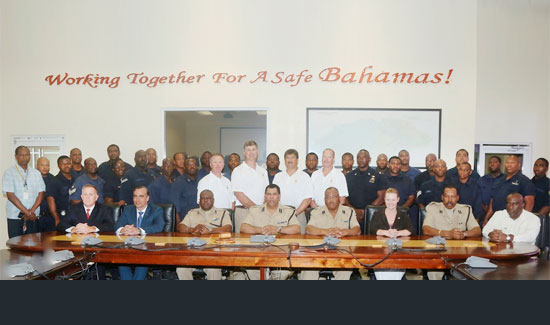In August, The Nassau Guardian revealed that Cuban detainees were severely beaten at the Carmichael Road Detention Centre in May. Most alarmingly this was merely one incident in a growing list of physical abuse charges by detainees against officers of our police and defence forces. We should all unite in the position that brutality in custody has no place in The Bahamas.
In February, over the course of a mere 24 hours, two men died while in police custody. A pathologist’s report revealed that Aaron Rolle, 20, died from a ruptured intestine and internal bleeding caused by blunt force trauma to the torso; while Jamie Smith, 35, had a crushed neck and died of asphyxia. Meanwhile, relatives of Corey Rolle, who died shortly after his arrest for armed robbery in 2010, are still waiting for the inquest to be held at the Coroner’s Court.
Moreover, the U.S. Department of State in its Bahamas 2012 Human Rights Report notes that some of the most serious human rights problems were complaints of abuse perpetrated by police and a poorly functioning judicial system. The report goes on further to state that detainees at the Carmichael Road Detention Centre reported physical abuse by Royal Bahamas Defence Force officers.
Clearly, the prevalence of abuse allegations and the deaths while in custody warrant a review of present tactics by our security forces. The lack of closed-circuit television (CCTV) in police stations, the prison and detention center does not boost officer accountability. Presently, offending officers can hide behind the usual dearth of evidence and a witness complaint. Moreover, the trial delays plaguing the judicial system provide little assurance for swift justice for either party.
Understandably, law enforcement officers are under pressure to capture and prosecute perpetrators. However, recurring allegations of brutality undermine the legitimate police work taking place.
The trust between the Bahamian community and law enforcement is strained. And a healthy trust is needed for the work of police to be done well and for us to be protected.
One city, Washington D.C., is tackling crime not through measures such as New York City’s stop-and-frisk policy, but through community involvement. Rather than arbitrarily searching suspicious individuals, usually minorities, D.C. police are reaching out to residents to foster trust. By engaging the community through one-on-one meetings, social media, and other forms of outreach, residents and police are tackling crime together.
We have the Urban Renewal 2.0 initiative here which has placed police in communities to work with residents on the issues that lead to crime. However, brutality by other members of the security forces toward inner city people take away from the efforts of those officers who seek to forge new linkages.
Brutality is not a sign of strength. It is a sign that all other efforts have failed and that desperation has set in. Firmness and fairness are compatible. We can have order and enforcement without violating the constitutional rights of our people.
via The Nassau Guardian.


